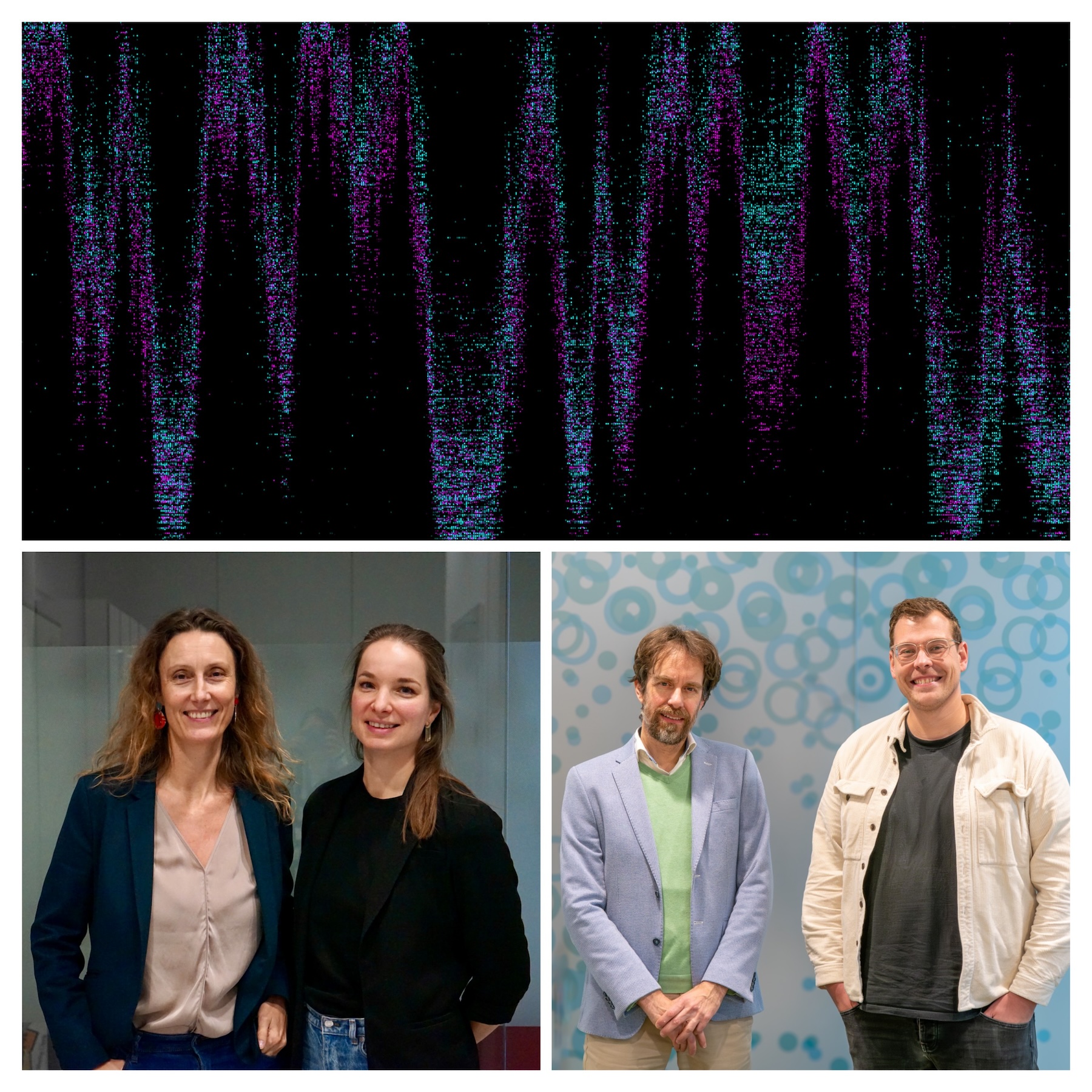scEdU-seq for two cellular models (in cyan and purple) showing distinct replication timing profiles
Van Oudenaarden and Groth research groups receive Novo Nordisk Foundation Synergy Grant for Epigenome Fidelity
Back to news
How reliably are patterns or markers on DNA (that don’t change the genetic code itself) passed from one cell to its daughter cells? Researchers from the research group of Alexander van Oudenaarden at the Hubrecht Institute and the lab headed by professor Anja Groth at the Danish Cancer Institute and CPR have been awarded a Novo Nordisk Foundation Synergy Grant of 15 million Danish krone (approximately 2 million euro) to answer this question. Both teams will use this grant to develop and apply novel technology to study the robustness of copying non-genetic information known as the epigenome. A better understanding of these processes will result in new strategies to prevent disease and combat ageing.
Lost Memories: Measuring Epigenetic Fidelity and Modeling Epigenome Evolution
The human body contains hundreds of different cell types that all contain the same DNA. Therefore, the cells rely on specialized gene expression programs that can activate specific genes to perform their function. These gene expression programs are controlled by the cell’s epigenome – information attached to the DNA but not embedded in the genetic code. Unintended epigenome alterations drive aging and disease. Such alterations can occur when the epigenome is copied imperfectly by the mother cell and inherited by daughter cells. Understanding the proces of epigenome inheritance might provide insights into aging and disease. Currently, epigenome copying is studied by averaging the epigenome information of millions of cells. The resulting data lack the resolution to quantify and model the fidelity of epigenome inheritance.
In the current project, the researchers will develop new technologies to study epigenome inheritance on individual DNA molecules as well as in single cells. Together with computational models, they aim to determine the fidelity of epigenome inheritance and identify hotspots for epigenome alterations. Next, they will apply the acquired knowledge in models of cancer, tissue regeneration and rejuvenation to understand how epigenomes evolve or mutate across the human lifespan.
At the Hubrecht Institute, we believe that collaboration sparks new and exciting research, driving scientific knowledge forward. In this project, researchers Jeroen van den Berg and Alexander van Oudenaarden from the Van Oudenaarden group, together with Anja Groth and Leonie Kollenstart from the Danish Cancer Institute, will combine their expertise in single-cell techniques and epigenome maintenance to develop new technologies for studying epigenome inheritance.

About the Novo Nordisk Fonden Synergy Programme
The Novo Nordisk Foundation Synergy Grant is a funding initiative aimed at fostering interdisciplinary collaboration among research teams to address complex scientific challenges. It provides substantial financial support to projects that combine expertise from diverse fields to achieve innovative breakthroughs in biomedicine, life sciences, and related areas. The grant emphasizes collaborative efforts that have the potential for significant scientific impact and societal benefit. The goals of the programme are to enable creative, novel, high-risk/high-gain interdisciplinary research; support early-stage research that requires interdisciplinary collaboration and solutions; stimulate emerging research that spans across scientific disciplines and techniques; break down or overcome the barriers that hamper collaboration across disciplines; and strengthen Danish research through internationalisation.
About Alexander van Oudenaarden
Alexander van Oudenaarden is group leader at the Hubrecht Institute, professor of Quantitative Biology of Gene Regulation at the UMC Utrecht and Utrecht University and Investigator at Oncode Institute.
About Anja Groth
Anja Groth group leader at the Center for Protein Research at Copenhagen University and this year will move to the Danish Cancer Institute in Copenhagen to start a Center of Excellence with a focus on Epigenetic Cell Memory.
About Jeroen van den Berg and Leonie Kollenstart
Jeroen and Leonie studied Biomedical Sciences together at Utrecht University and are currently postdoctoral reseachers in van Oudenaarden and Groth lab, respectively.
